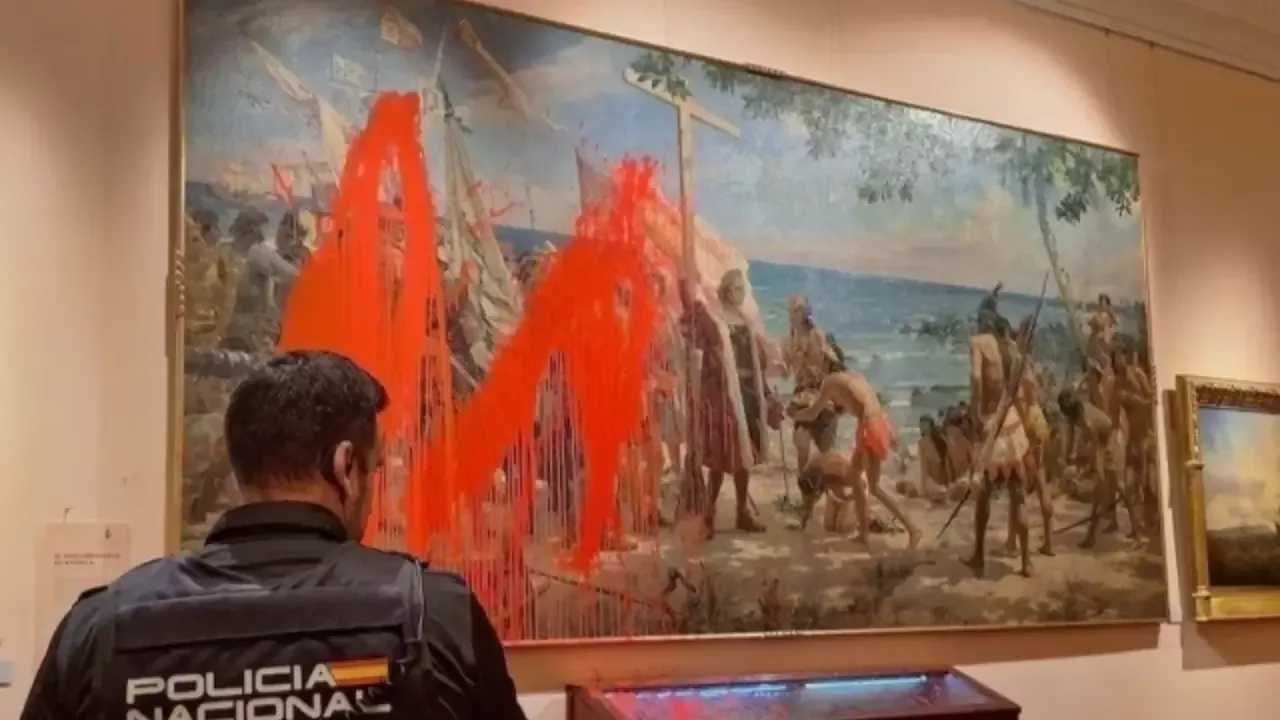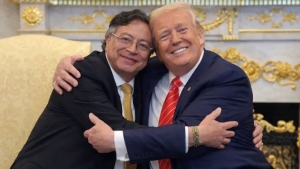Paint was splashed on Columbus's artwork at the museum in Madrid

An unexpected incident occurred at the Naval Museum in Madrid. This was reported by Zamin.uz.
Red paint was poured on an artwork depicting the Italian traveler and sailor Christopher Columbus. This was reported by the El País publication.
According to information, activists from the environmental organization Futuro Vegetal carried out this action. They poured biodegradable paint on the artwork titled “The First Celebration of Christopher Columbus” by artist José Garnelo, and protested with the slogan “There is nothing to celebrate.”
The activists described their action as a call to restore historical justice. In their view, Columbus’s “discovery” of America is linked to the tragic fate of the indigenous peoples, and therefore this day should not be celebrated but rather the injustices of the past should be acknowledged.
After the incident, the museum administration announced that security personnel detained the activists. They are accused of damaging cultural heritage, and an investigation is currently underway.
In Spain, October 12 is celebrated annually as a national holiday. This date marks the day in 1492 when Christopher Columbus first set foot on the American continent.
However, in recent years, this date has sparked serious debates in society. Some view this day as “the beginning of a new era of world civilization,” while others see it as “a major invasion and the enslavement of indigenous peoples.”
Historians emphasize that Columbus did not actually discover America, as various peoples and cultures already existed there when he arrived. His voyages led to Western Europe’s entry into new territories and later to the beginning of colonial policies.
Columbus made four trips to America between 1492 and 1502. As a result of his actions, countries such as the United States, Canada, and Mexico were later established.
However, this process had severe consequences for the indigenous population, including loss of their lands, destruction of their cultures, and violence. Today, opinions about Columbus’s personality in Europe and America are divided into two opposing views.
One group considers him a “hero who united the world,” while others see him as a “symbol of colonialism.” The incident in Madrid has once again revived these debates.
As ecologists have emphasized, it is time to reconsider history and convey the true events to the new generation. After this event, the public began to reflect: it is necessary to once again understand whose victory and whose tragedy our celebrated history represents.







